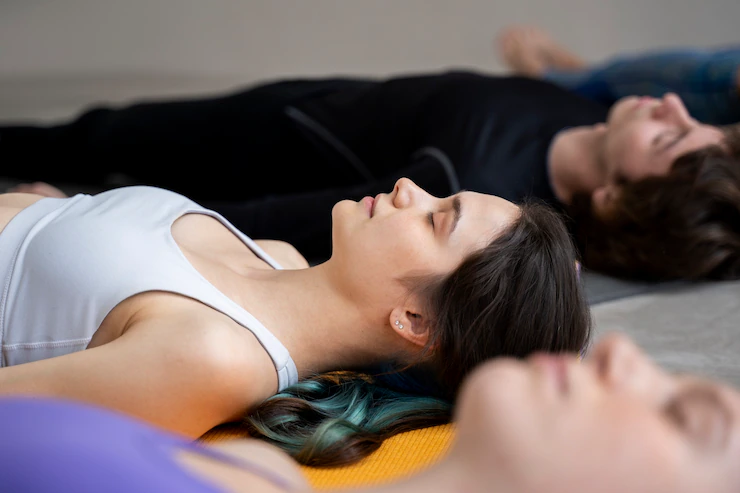In today’s fast-paced world, stress has become a common part of our lives. However, finding effective ways to manage stress is crucial for maintaining our mental well-being. Mind-body practices offer powerful tools for reducing stress, promoting relaxation, and enhancing overall mental health. In this article, we will explore various mind-body practices and how they can positively impact stress reduction and mental well-being.
- Meditation
Meditation is a practice that involves training the mind to focus on the present moment while cultivating a sense of calm and clarity. Regular meditation practice has been shown to reduce stress, anxiety, and depression. It promotes relaxation, improves emotional regulation, and enhances overall mental well-being. Start with just a few minutes a day and gradually increase the duration as you become more comfortable.
- Yoga
Yoga combines physical postures, breathing exercises, and meditation to create a holistic mind-body practice. It promotes relaxation, flexibility, and strength while calming the mind. Practicing yoga regularly can reduce stress levels, improve mood, and increase self-awareness. There are various styles of yoga, so find one that resonates with you and fits your needs.
- Tai Chi
Tai Chi is an ancient Chinese martial art that focuses on slow, flowing movements and deep breathing. It promotes relaxation, balance, and mental clarity. Regular practice of Tai Chi has been shown to reduce stress, anxiety, and depression while improving cognitive function and overall well-being. It is a gentle and accessible practice suitable for people of all ages and fitness levels.
- Deep Breathing Exercises
Deep breathing exercises help activate the body’s relaxation response, reducing stress and promoting a sense of calm. Practice diaphragmatic breathing by taking slow, deep breaths, allowing your abdomen to rise as you inhale and fall as you exhale. Deep breathing can be done anywhere, anytime, making it a convenient tool for stress reduction.
- Progressive Muscle Relaxation
Progressive Muscle Relaxation involves tensing and releasing different muscle groups in the body to promote relaxation. Start by tensing a specific muscle group for a few seconds, then release and let go, focusing on the sensation of relaxation. This practice helps relieve muscle tension, reduces stress, and encourages overall relaxation.
- Mindfulness
Mindfulness involves bringing focused attention to the present moment without judgment. It cultivates a non-reactive awareness of thoughts, emotions, and sensations. Mindfulness practice has been shown to reduce stress, anxiety, and depression while enhancing emotional well-being and resilience. Incorporate mindfulness into your daily life by paying attention to the present moment, engaging in activities with full presence, and practicing self-compassion.
- Guided Imagery
Guided imagery involves using your imagination to create vivid mental images that promote relaxation and stress reduction. Close your eyes and visualize a peaceful and calming scene, incorporating all your senses. Engaging in guided imagery can help reduce stress, improve mood, and increase overall well-being.
- Journaling
Journaling is a simple yet powerful practice for self-reflection and stress reduction. Write down your thoughts, emotions, and experiences in a journal regularly. This practice allows you to gain insights, process emotions, and cultivate self-awareness. It can be a therapeutic tool for managing stress and enhancing mental well-being.
Embracing mind-body practices offers a holistic approach to stress reduction and mental well-being. Incorporating practices such as meditation, yoga, tai chi, deep breathing exercises, progressive muscle relaxation, mindfulness, guided imagery, and journaling into your routine can help you navigate stress more effectively, enhance relaxation, and promote overall mental health. Find the practices that resonate with you, and make them a regular part of your self-care routine. Remember, taking care of your mind and body is essential for a balanced and fulfilling life.










